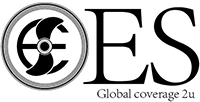马来西亚关税最低起征点,马来西亚当地进口关税多少?

马来西亚海关关税查询
马来西亚(APCE成员)http://tr.apec.org/tdb.cgi/ff3235/apeccgi.cgi
【马来西亚海关概览】
无论个人或商业实体在马来西亚从事商品进口,均须缴纳进口关税和其他税费。进口税费全部以货运价值,即到岸价值(CIF)计算。特定商品的进口税费则是在CIF价、卸货费总和的基础上征收一定税率的费用。某些商品以测量单位计征,如重量和体积。同时,进口商品还须征收增值税,某些商品征收消费税。
【马来西亚海关关税】
马来西亚关税税率在0%和50%之间,平均关税税率为5.74%。某些商品免征关税,如笔记本电脑、电吉他和其他电子产品。
【马来西亚海关增值税-GST】
增值税=标准增值税税率为10%×(CIF价+关税+某些适用消费税)。某些商品可享受0-5%的优惠增值税税率。营业税有时也可从量计征,如单位升和单位千克。
【马来西亚海关起征点】
进口商品货值(CIF价)不超过500令吉,则免征关税。但从美国进口的烟酒制品例外。马来西亚增值税和消费税均不设起征点。
【其他】
消费税可从价也可从量计征。如单位升,单位升酒精,单位千克,单位支(香烟)。具体产品消费税税率计征如下:
10%-105.0%
0.1$-34$/升
22.5$-42.5$/升酒精
0.22$/支
7.5$/千克-220$/千克
马来西亚:凡收件人持有免税证需申请免税进口的,必须在交货清单上清晰注明(最好能在运单上同时注明)并在出货前,明确通知货代人员处理,以便通知当地安排相关事宜。
马来西亚进口关税制度:
马来西亚作为世界贸易组织成员国,关税水平一般较低。虽然大多数品目的关税税率低于25%,但关税税率的取值范围很广。基本食品的关税很低,不超过5%。主要货物的平均税率约为5%。中间产品和运输设备的税率平均低于20%。消费类货物的税率更高,有的高达60%。高价机动车辆征收的关税税率高于100%。
总之,在其总共约600种进口品目中,只有91种的关税税率超过50%。马亚西亚作为建设中的东盟自由贸易区(AFTA)的成员国,其关税减让将执行AFTA条例中关于“普遍有效优惠关税”(CEPT)计划。马亚西亚主要的进口产品分三类,第一类是原料、生产资料,包括电子原件、纺织品、塑料、机器零部件、石油、化肥、农药和食品,共占进口总额的42.6%;第二类是机械设备,包括金属产品、机械运输设备、电子仪器、重型机械和电信设备,共占进口总额的34.5%;第三类是日常生活用品,包括摩托车、自行车、珠宝及食品,共占进口总额的21.9%。马亚西亚进口货物都要按CIF(到岸价格) 值征收5%的附加税。一些基本货物如鱼、谷类、盐、石油产品、橡胶、纸和印刷品等是免征附加税的。对啤酒、酒精和其他饮料,烟、汽油、矿物油和糖、轮胎、纸牌、空调、电池、电视接收机、机动车辆和摩托车、火柴等商品按从价或从量征收消费税。
马来西亚进口管制:
1.进口单证。
(1)商业发票 用于计征关税的原始发票要求使用英语填写并签署姓名。发票必须包括以下项目:标记、号码、货包的数量和种类、详细的商品名称,非技术名称或内部标号代码、毛重和净重、FOB、CIF费用和CIF价(如属于不同的海关税则项目,还必须将每种商品按CIF价分开注明)、发货地点和原产地。包装上的商品说明必须与发票上的一致,发票要一式三份。
(2)原产地证书 原产地证明书只针对来自联邦制国家的货物。
(3)提单 海运提单不需公证。允许使用指示提单,但要注明一位被通知人地址。
2.特别规定。
必须用巴哈萨来语在已包装完毕的货物标签上注明有关商品说明、公制重量和原产地的所有详情,英语只允许以第二种语言使用。所有已包装的产品必须印有以下说明:生产者、进口商或批发商的姓名、原产地、包装内容和产品的名称。食品、药物、家畜和肉类还必须注明卫生检疫规定,包括标签规定。用马来西亚语标出以下内容:原产地、商品说明、重量、保存期、进口商的姓名和通讯地址。香烟的包装必须用马亚西亚语印上清晰的损害健康类的警语。
3.对未领取货物的处理。
买主未按期限提取的货物可以在海关仓库中保留21天。逾期通知收货人,须在7天内提货,否则海关将予以拍卖。拍卖所得用于支付报关费、仓储费和其他所有费用。空运货物必须在72小时内领取,否则将处以高额的仓储罚金。该货物若3个月后仍未领取,将被退回。
马来西亚自由港及其管理制度:
马来西亚的自由贸易区主要集中在西海岸一带海陆交通比较发达的地方,著名的贸易区有槟榔屿、双溪瓦伊、巴都伦丹、丹戎克灵、拉布安、普赖、乌卢克朗、帕西古当、柔佛港、近打、宾图卢等。这些贸易区大都有以下两个特点:1.发展速度快。现已建成了18个贸易区。马来西亚已成为目前世界上设立自由贸易区速度最快、数量最多的发展中国家之一。2.自由贸易区外设立特许制造业仓库,目的是让投资者在那些不可能或不适应设立出口工业加工区的地方设立工厂,用于生产出口工业制品。特许制造业仓库的经营方式和所提供的关税优惠待遇,与自由贸易区一样。绝大多数享有特许制造业优惠待遇的企业集中在森美点的塞纳旺、吉打州的知干岑和柔佛州的工业区。
马来西亚税收制度发展健全,其主要税收制度是来源于英国和澳大利亚的税收制度。马来西亚联邦政府和各州政府实行分税制,联邦财政部统一管理并负责制定税收政策。联邦税种分为直接税和间接税,由联邦州府下属的内陆税务局和皇家税务局直接征收。直接税为公司/个人所得税、石油所得税、不动产盈利税等;间接税包括印花税、国产税、关税、进口税等。外国公司和个人同马来西亚企业和公民一样同等纳税。2015年4月,马来西亚用消费税替代了销售税和服务税,税收结构有所调整。1985年11月23日,中马政府在北京签订了《中华人民共和国政府和马来西亚政府关于对所得避免双重征税和防止偷漏税的协定》。最新有关避免协定的文件《〈中华人民共和国政府和马来西亚政府关于对所得避免双重征税和防止偷漏税的协定〉的换函》于2016年11月1日在北京正式签署,即日起生效。
马来西亚现行税种主要有:消费税、个人所得税、公司所得税、预扣税、不动产盈利税、石油所得税、国内税等。不同的税种计征方法不同。
马来西亚消费税:
马来西亚政府在2014年6月正式通过《消费税法令》,于2015年4月1日开始实行消费税,以取代原有的销售和服务税。新消费税税率为6%,而原税率为5%至16%不等。大米、鱼、肉、报纸等4,000种商品不在征税范围内。
